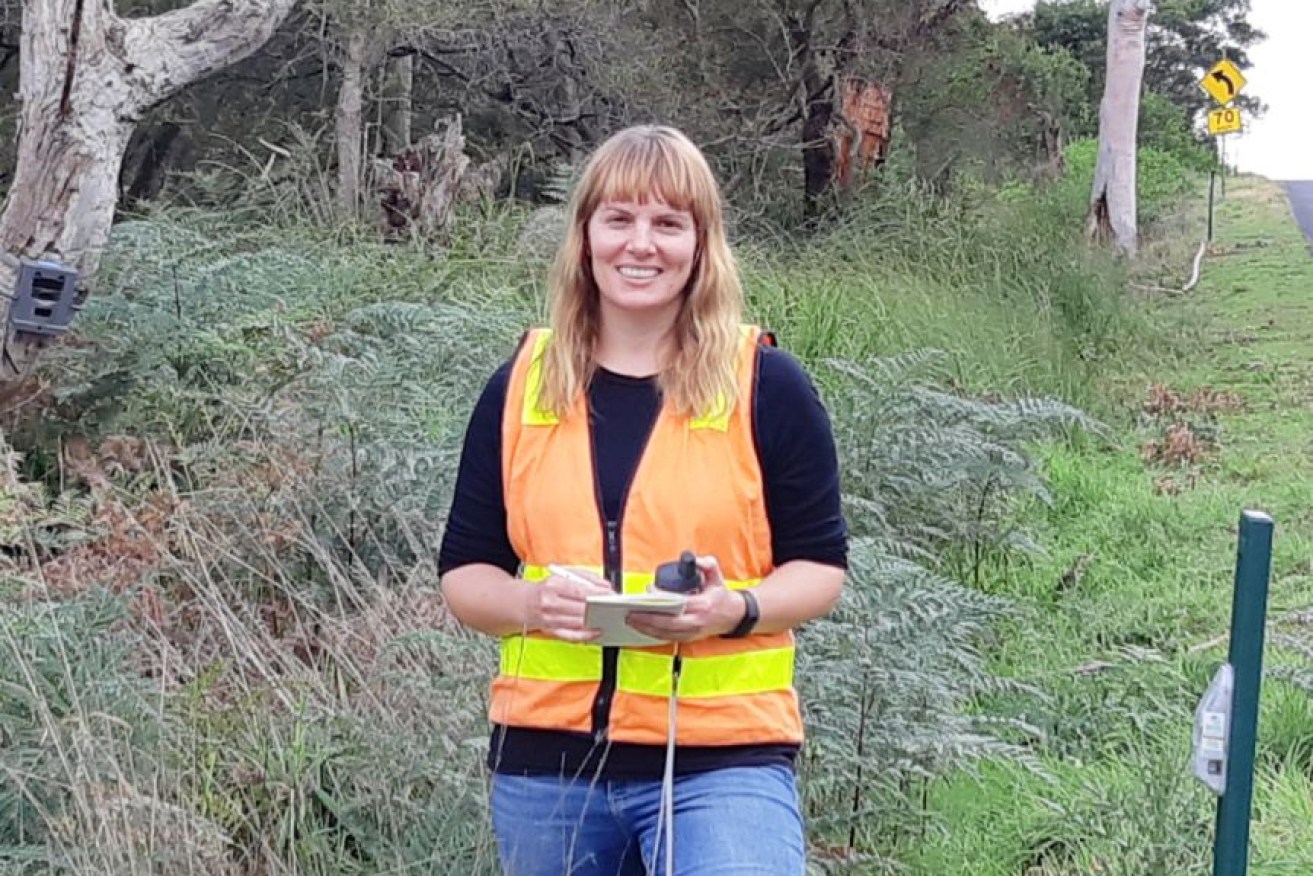Virtual fence shows promise as solution to roadkill problem
An invisible roadside fence designed to reduce the number of animals being killed on Queensland roads is being trialled on the Sunshine Coast.

Dr Connelly says the technology has "real promise". (Photo: Supplied: Diana Whittington)
An invisible roadside fence designed to reduce the number of animals being killed on Queensland roads is being trialled on the Sunshine Coast.
Concerned about the amount of roadkill on her street, Mudjimba resident Christine Pitcher lobbied the local council for virtual fencing to be installed in the area.
“I spoke to various neighbours about it and they were pretty upset about what was happening … particularly because some kangaroos were being hit and being left to die,” she said.
“There were also a couple of people in the street that hit them and had damage to their cars.”
The council and the University of the Sunshine Coast began a small trial of the fencing in August 2018, and with community support it has since expanded across the region.
The virtual fencing is based on European technology, and includes a device attached to a pole by the side of the road.
The device is triggered by vehicle headlights and emits a buzzing sound and flashing light to warn nearby wildlife of approaching vehicles.
Pitcher said since it was introduced at Mudjimba in January, she had not seen one dead kangaroo.
A Sunshine Coast Council spokesperson said the monitoring of all trial sites was “still in progress” and would be reviewed later this year.
A trial of the fencing is also under way on Victoria’s Phillip Island, where swamp wallabies and possums are common roadkill victims.
Dr Christine Connelly, a lecturer in environmental science at Victoria University, said the technology showed “real promise” because of its ability to protect, but not displace, animals.
“So enough to keep them safe, but also not too much to stop from being able to move around to access resources within landscapes,” she said.
Roadkill shock inspires action
Tasmanian-based company Wildlife Safety Solutions sells the technology to local councils.
Its founder Jack Swanepoel has a passion for wildlife conservation after growing up near Kruger National Park, one of South Africa’s largest game reserves.
He recalled being “appalled” by the amount of roadkill in Tasmania when he visited in 2013.
“Naturally [I] felt like something had to be done,” Swanepoel said.
“It just felt like there can’t not be a solution out there.
“We thought well lets give it a shot and try it on Australian wildlife.”
But Swanepoel said more work was required to establish the exact species the technology was capable of protecting.
“We need to obviously establish that it works on all wildlife, [and] that takes a few more studies.”
But he said any reduction in roadkill was positive.
“Especially when we compare it to other mitigation methods like physical fencing, which costs 10 times more and doesn’t achieve the same results.”
Roadkill reduced by half during Tassie trial
Dr Sam Fox, a wildlife biologist from the Save The Tasmanian Devil Program, was part of the first Australian trial of virtual fencing from 2014 to 2017.
It was done on a stretch of road between Arthur River and Marrawah in Tasmania’s northwest.
The Tasmanian pademelon and Bennett’s wallaby were the most common animals to be hit by cars in the area.
Fox said 408 animal deaths were recorded in the unfenced area of the trial compared to 102 in the fenced section.
“There was a 50 per cent decline in roadkill within the area which had the virtual fencing,” she said.
Fox said the results showed the technology could help reduce roadkill in other parts of the country.
“If it’s set up and installed on a road that is suitable for it, it can be very successful,” she said.
– ABC / Tim Wong-See












